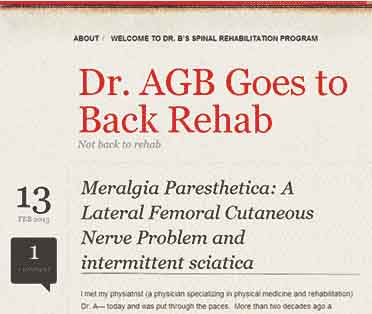VOLUME II / FEB 2013
Two Dreams is a wellness program led by Andrea G. Barthwell, MD, FASAM that provides individualized care for those who dream of recovering a healthy lifestyle.
NOTE FROM DR. B.
Last month we discussed accepting the new identity as an alcoholic and/or drug dependent person and that honesty is required to admit that such an identity fits us so that we can recognize that the diagnosis applies to us as well. This month, we highlight Step 2 which recognizes the need for help and the truth that continued use leads to continued negative effects. Step 2 calls for opening up to a feeling experience that requires and creates hope. Here, the Big Book directs the movement from knowing to feeling. Step 2 contains within it a life-changing spiritual transformation for those who are successful in their journey of sobriety and recovery.
VOLUME II / FEB 2013
Two Dreams is a wellness program led by Andrea G. Barthwell, MD, FASAM that provides individualized care for those who dream of recovering a healthy lifestyle.
NOTE FROM DR. B.
Last month we discussed accepting the new identity as an alcoholic and/or drug dependent person and that honesty is required to admit that such an identity fits us so that we can recognize that the diagnosis applies to us as well. This month, we highlight Step 2 which recognizes the need for help and the truth that continued use leads to continued negative effects. Step 2 calls for opening up to a feeling experience that requires and creates hope. Here, the Big Book directs the movement from knowing to feeling. Step 2 contains within it a life-changing spiritual transformation for those who are successful in their journey of sobriety and recovery.
What an order, particularly for people who will not or cannot believe. Some individuals lead intellectually-driven lives and feel that spirituality and belief in a power greater than themselves reduces their autonomy and minimizes their importance as the master of their fate. They need only look so far as to see that substance abuse has already robbed them of free will. When humility and intellect co-exist, spirituality can thrive.
How about those who find it hard to believe because they once had faith or sought a religious solution and lost their way? Or those who became indifferent, claimed self-sufficiency, and embraced prejudice against religion? Or those who are defiantly rejecting because they have called out for help and found themselves wanting and unfulfilled? Perhaps these circumstances are harder to overcome than intellect as they involve feelings rather than thoughts—again, a more sensitive arena that deserves protection. To them we say working the steps demands nothing—they are suggested as a guide. The steps require no wholesale belief; they only require an open mind.
But this step is not as simple as a code of morals—if that was all it took, more would get sober without AA and other 12-step programs or treatment. Wishing and hoping, power and might are not the key. Willpower of the size that an individual can marshal is never enough; it has to be a power greater than ourselves. For those in treatment, that might be turning their life and will over to the system of care—structure and support can help restore some sanity.
With an acceptance of a power greater than ourselves, we can turn over that which baffles us or creates pain and conflict. We do not have to control others and all outcomes; we do not have to worry or ruminate. If we stay in the now, we will see that our personalities will change from selfish to selfless, self-centered to God-centered, willful to grateful, fearful to faithful. Do you want this transformation?
If you do, we know that power is outside of ourselves and we learn that in treatment and in Step 2. The rest of the steps will answer the question of how to find this power right inside of each and every one of us. Come back next month when we will discuss the last of these first three steps which help the newly recovering individual start to give up the old way of living, thinking, feeling, and being.
STEP OF THE MONTH
#2: “Come to believe that a Power greater than ourselves could restore us to sanity.”
Many people think that a “Power greater than ourselves” is just a synonym for God. The reality is, though, that there is no definitive answer of who or what a person’s Higher Power can be. Of course, it is okay for a person to view God as their Higher Power, but a person who does not believe in a God can believe in a Higher Power in other ways. For instance, it is possible that your A.A. group may be your Higher Power.
A person’s obsession and addiction along with other factors in their life can literally drive a person insane. The idea that your higher power restoring you to sanity can be a comforting feeling; it can make you feel as if you’re not in the struggle alone.
Let your higher power take care of the things that you yourself cannot change. If there is something in your life that you can change for the better, find the courage within yourself to make these positive changes.
I believe that if you work hard to make positive changes in your life, your Higher Power will work just as hard making changes for the better.
By working the steps you can bring sanity back into your life. By finding a Higher Power it is easier to cope with things you cannot change while not losing faith in your Higher Power’s ability to heal. Your relationship with your Higher Power can be the lifeline that restores you to sanity.
NEWS HIGHLIGHTS
BNT Pain Management Methods
Approximately, 250,000 to 300,000 people that are in treatment for opioid addiction are using buprenorphine-naloxone treatment (BNT). BNT has greatly expanded access to
treatment for opioid addiction. A clinical challenge to providing this therapy effectively, however, is the fact that many of those who are addicted to opioids also suffer from chronic pain (CP). Unlike those who are on methadone maintenance therapy (MMT), no extensive studies have been done regarding pain treatments among those who are on BNT.
http://www.ncbi.nlm.nih.gov/pubmed/23041680
Treatment providers must be cognizant of pain management strategies among those who are on BNT as such strategies might complicate or impact outcomes. Such strategies may fall under the categories of complimentary or alternative medicine (CAM). Complimentary medicine is described as “non-conventional medical treatment used in conjunction with standard medical interventions” and alternative medicine as “treatment interventions used in place of standard medical care”.
This study found that those who suffered from CP and some pain (SP) employed various methods of pain management. Many used over-the-counter or prescription medications (health care providers should be sure to speak to patients about use of opioid pain-killers and the risks of mixing benzodiazpines with other drugs and alcohol); yoga; acupuncture; various physical therapies (such as stretching, physical therapy, heath therapy, etc.); and support groups.
FDA Advisers Endorse Limits on Vicodin
More than 136 million Vicodin and similar pain killer prescriptions had been written this past year making them the most widely used prescription drugs. New sanctions on the drugs are looming and the debate is in full affect amongst the FDA and pain specialists. The FDA is trying to make it harder for abuse to occur, while pain specialists fear it will become harder for people in pain to get they drugs they require.
COMMUNITY
Dr. Andrea G. Barthwell started Spinal Rehabilitation Program on February 11th. It is very important to Dr. Barthwell that everyone share in her journey of “practicing what she preaches.” After three surgeries, multiple hospitalizations and emergency room visits, she will face many challenges as she confronts this pain and takes the necessary steps to breaking free of any back and neck pain in the future. This blog was created so that we may have access to what she is going through each and every day, as she will personally talk about the highs and lows of this process.
THE 3P’S
mental peace – physical well-being – personal productivity
Mental Peace
February is the season of love. But it is also when many battle depression from constant reminders of the companionship they may lack. So make this month an opportunity for cultivating self-love. The concept of loving yourself is often interpreted as narcissistic, selfish and needlessly self-indulgent. In reality, however, to practice self-love is to accept and embrace yourself just the way you are. According to Deborah Khoshaba, Psy.D, “How you take care of yourself influences who you pick for a mate, the image you project artwork, and how you cope with the problems in your life.”
This is extremely difficult to do. It is easier to spend an entire lifetime judging ourselves for not meeting impossible standards of perfection than to encourage and nurture ourselves and care for our physical, psychological and spiritual well-being. The act of loving oneself is just that: an action. It grows from more to more with conscious decisions to practice it.
Practice mindfulness: Start paying more attention to your thoughts and feelings. Listen to what you feel and put value in it.
Set boundaries: Foster the strength to turn away from something that feels exciting but proves destructive. Focus on what you need to stay strong, centered, and moving forward.
Surround yourself with people who care: A friend who takes pleasure in your pain is not a real friend. Life is too short to maintain relationships that are only perpetuating your pain.
Forgive yourself: Accept that you are not perfect in order to truly love yourself. Practice being less hard on yourself when you make a mistake. There are no failures from your errors, only lessons learned.
Live Intentionally: It does not matter what your specific purpose is, just that you have one. If your intention is to live a meaningful and healthy life, you will start making decisions that support this.
Physical Well Being
CHOCOLATE SOUFFLE
Extravagance has never been so easy. Treat yourself to thesequick, low-sodium soufflés.
For More Information on Our Sleep Program
Personal Productivity
BODYWEIGHT EXERCISES YOU CAN TRY AT HOME
It’s all too easy to push off exercising when going to the gym becomes a series of logistics. It could be a long commute, a long wait for the treadmill, oryour favorite exercise class that always happens when you’re at work. Well fear not, for there are 8 tips to try that don’t need any special location or equipment.
Stay tuned for next month’s launch of @sk DrAGB, Dr. Andrea G. Barthwell’s online encyclopedia specializing in addiction medicine.
For admissions and all staff call us at: (504) 510-2331
© 2013 Two Dreams Outer Banks. All Rights Reserved.




